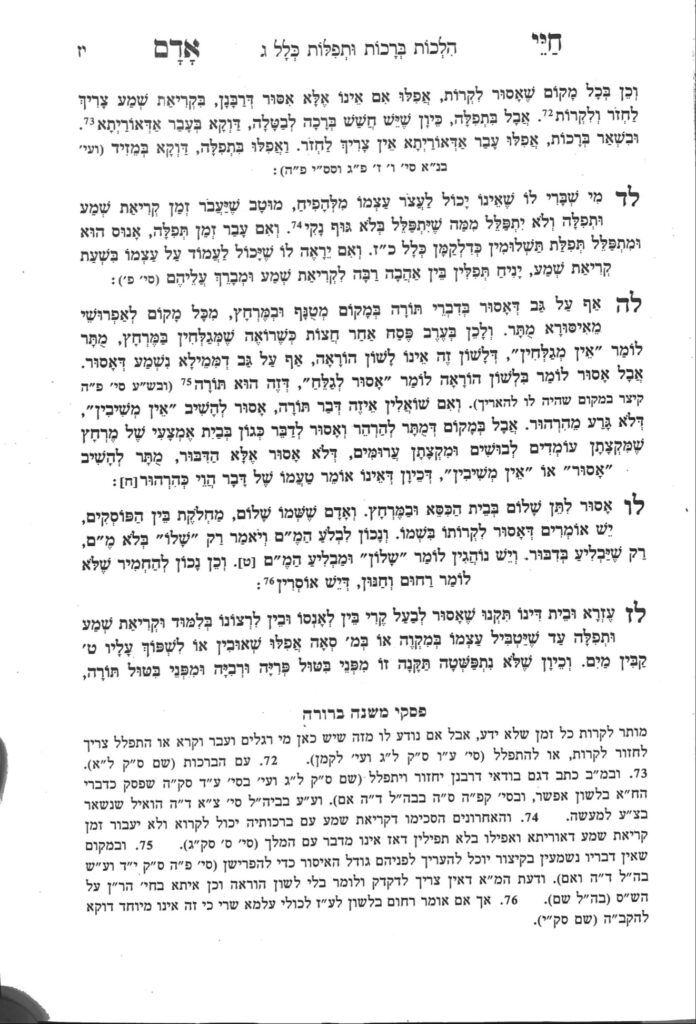We are beginning siman 36, where the Chayei Adam continues the discussion about what is permitted to say in a beis hamerchatz (or any other place where it is assur to learn). The Chayei Adam writes that there is no issur to talk in a beis hamerchatz (about things which are not Torah). However, in a beis hakisei, Chazal discourage people from talking at all. The Gemara in Maseches Tamid tells us that the beis hakisei under the Beis Hamikdash had a door, and if a person wanted to know if someone was already in there, the person inside would reply with a grunt rather than speaking. Halacha derives from that Gemara that one should not talk in a beis hakisei. However, the Gemara says that this halacha does not apply to women. The beis hakisei used to be outside of the city, and Chazal were concerned that women would be taken advantage of, so they encouraged women to talk in the beis hakisei so that men would stay away. This halacha remains in place today as well.
We learned that it is muttar to talk in a beis hamerchatz. However, the Chayei Adam writes that it is assur to greet someone in a beis hamerchatz with the greeting “Shalom”, because it is one of Hashem’s names. Similarly, it would appear to be assur to bless someone (e.g., “be gebentched”, “zie gezunt”, etc), because what the person means to say is that “Hashem should bless you”. However, the standard minhag does not seem to be careful about these phrases.
If a person’s name is Shalom, it is a machlokes whether one can greet him in a beis hamerchatz. On the one hand, it is a name, and not being said for the purpose of invoking Hashem, but on the other hand, it is still Hashem’s name. The Chayei Adam suggests that one should call the person “Shalo-” and swallow the last letter, or “Shalon” with a nun. The Mishnah Berurah paskens this way as well.
Similarly, the Chayei Adam writes that one should be careful with the words Rachum and Chanun as well. Although they are not one of the seven names of Hashem which cannot be erased, one should still be careful not to say them in a beis hamerchatz, whether they are a person’s name, or whether they are describing someone’s character traits.
Summary
- Although it is assur to speak words of Torah in a beis hamerchatz (other than to prevent someone from issur, as we learned previously), it is muttar to speak non-Torah speech. However, one should not say the words Shalom, Chanun or Rachum, whether in greeting a person, in calling out to someone with that name, or in describing a person’s qualities.
- Men are forbidden from speaking in a beis hakisei completely, but women are encouraged to speak.



